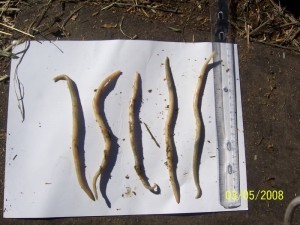Have you had a fecal done on your horse recently?
This year equine veterinarians have recognized a growing problem of parasite resistance to some brands of equine dewormers, particularly in Washington state. In addition, horses kept on pastures that are not picked daily are also extremely susceptible to becoming reinfested in between regular dewormings. Most local area vets are now recommending that horse owners move away from traditional deworming methods of worming every 6–8 weeks using a rotational paste worming program, and are instead recommending routine fecal tests (at least twice a year) and targeting deworming products used based on fecal results.
SAFE has always been extremely diligent about their worming protocol due to the fact that we often take in horses that have extremely heavy parasite loads. However, recently we started noticing our horses having intermittent issues with diarrhea and seeing parasite shedding after regular dewormings. We consulted with our veterinarian and begun conducting fecal tests on all horses in our program and found that many of our horses were carrying a very high parasite load despite our regular, rotational deworming program. We are now forced to worm each horse in our program each week with a different product and do a fecal after each wormer until the results come back negative.
So, have you had a fecal done on your horse recently? We highly recommend you do, even if you never miss a deworming and don’t think you could possibly have a problem. More information on the new recommending deworming protocol can be found on Evergreen Holistic Veterinary Care’s May/June 2010 newsletter here: http://evergreenholisticvet.com/Documents/MayJune%202010%20Newsletter.pdf



Hello, I believe your site could be having browser compatibility issues.
When I look at your blog in Safari, it looks fine however, when
opening in Internet Explorer, it has some overlapping issues.
I simply wanted to provide you with a quick heads up!
Aside from that, fantastic blog!
Definitely believe that which you stated.
Your favorite justification seemed to be on the web the easiest thing to be aware of.
I say to you, I certainly get annoyed while people think about worries that they plainly do not know about.
You managed to hit the nail upon the top and defined out
the whole thing without having side effect , people can take a signal.
Will probably be back to get more. Thanks
Good response in return of this question with genuine arguments and
describing the whole thing concerning that.